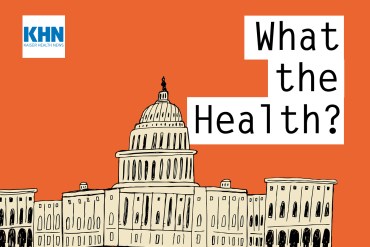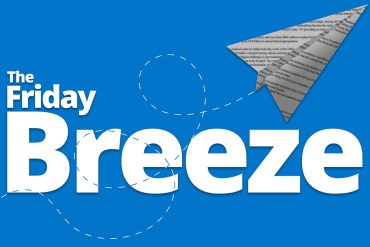Obamacare’s Star Ratings Offer A Glimmer Of Insight ― But Not For All
Federal officials unveil new ratings for the Affordable Care Act’s marketplace plans. Missouri is one of eight states that has no plans earning at least three stars on a five-star scale.
Calificación de estrellas del Obamacare ofrece algo de información, pero no para todos
Las calificaciones se pueden ver en cuidadodesalud.gov, el sitio federal en donde los consumidores revisan los beneficios y precios de los planes.
KHN’s ‘What The Health?’: Spooky Stuff
If it’s Halloween, that means open enrollment for plans on the Affordable Care Act exchanges is right around the corner. Prices are down this year, but the future of the health law remains in doubt due to a lawsuit seeking to have the entire measure thrown out. This week, Stephanie Armour of The Wall Street Journal, Mary Agnes Carey of Kaiser Health News and Alice Miranda Ollstein of Politico join KHN’s Julie Rovner to discuss these issues and more. Also this week, the panelists read the top entries in KHN’s Halloween Health Haiku Contest.
Must-Reads Of The Week From Brianna Labuskes
Newsletter editor Brianna Labuskes wades through hundreds of health care policy stories each week, so you don’t have to.
KHN’s ‘What The Health?’: Tennessee Seeks Medicaid Changes
Tennessee wants to convert its Medicaid program to a block grant. But is its plan legal? Meanwhile, Congress continues to struggle with legislation to rein in prescription drug prices and surprise medical bills. This week, Anna Edney of Bloomberg News, Jennifer Haberkorn of the Los Angeles Times and Kimberly Leonard of the Washington Examiner join KHN’s Julie Rovner to discuss these issues and more. Rovner also interviews Dr. Marty Makary, author of the new book “The Price We Pay” about why health care costs so much.
Podcast: KHN’s ‘What The Health?’ Health Care’s Back (In Court)
It’s been a wild week for health policy, mostly because of developments surrounding two different legal cases. Margot Sanger-Katz of The New York Times, Joanne Kenen of Politico and Kimberly Leonard of the Washington Examiner join KHN’s Julie Rovner to sort it out with a discussion of a setback for Medicaid work requirements and the Trump administration’s decision to back a lawsuit claiming the entire Affordable Care Act is unconstitutional. Also, Rovner interviews filmmaker Mike Eisenberg about his movie “To Err Is Human: A Patient Safety Documentary.”
Broker Websites Expand Health Plan Shopping Options While Glossing Over Details
These direct-enrollment broker websites are “under-policed” and can steer consumers toward plans that may not be the best option for them, a new report concludes.
Ads For Short-Term Plans Lacking ACA Protections Swamped Consumers’ Online Searches
People looking for insurance during the recent open enrollment period were frequently directed to websites promoting plans that are not required to offer the federal health law’s consumer guarantees.
Caen en picada las nuevas inscripciones en Covered California
Las nuevas inscripciones cayeron casi un 24% para los planes de 2019. Algunos expertos dicen que esta baja no es una sorpresa.
New Covered California Sign-Ups Plummet
Even though the number of people renewing their Covered California health plans increased this year, new enrollment plunged by nearly a quarter compared with last year, posting a bigger drop than the federal health insurance exchange, healthcare.gov, which saw a 16 percent decrease. Officials largely blame the elimination of the federal tax penalty for people without insurance.
Must-Reads Of The Week From Brianna Labuskes
Newsletter editor Brianna Labuskes wades through hundreds of health articles from the week so you don’t have to.
Must-Reads Of The Week From Brianna Labuskes
Newsletter editor Brianna Labuskes wades through hundreds of health articles from the week so you don’t have to.
Bills, Bills, Bills: Readers And Tweeters Offer Solace, Solutions And Scoldings
Kaiser Health News gives readers a chance to comment on a recent batch of stories.
Podcast: KHN’s ‘What The Health?’ New Year, New Health Proposals
Democratic governors and mayors are unveiling new ideas to control costs and expand coverage. The federal government shutdown has spared most health agencies, but not all. And learn the latest on that lawsuit out of Texas, which is threatening the Affordable Care Act once again. Margot Sanger-Katz of The New York Times, Anna Edney of Bloomberg News and Rebecca Adams of CQ Roll Call join KHN’s Julie Rovner to discuss these issues and, for “extra credit,” provide their favorite health policy stories of the week. Rovner also interviews KHN’s Jordan Rau about the latest “Bill of the Month.”
End Of Tax Penalty Could Fall Hardest On Previously Uninsured Californians
A new report shows that Hispanics, young people, the healthy and the poor — all groups with high rates of uninsurance before the Affordable Care Act — are the most likely to forgo insurance now that the tax penalty for not having it has been eliminated.
Podcast: KHN’s ‘What The Health?’ Ask Us Anything!
From Medicare dental coverage to drug prices to fetal tissue research, the panelists answer listeners’ questions. Joanne Kenen of Politico, Stephanie Armour of The Wall Street Journal and Paige Winfield Cunningham of The Washington Post join KHN’s Julie Rovner.
Must-Reads Of The Week From Brianna Labuskes
Newsletter editor Brianna Labuskes wades through hundreds of health articles from the week so you don’t have to.
The fallout continues from that Texas court decision that ruled Congress’ 2017 elimination of the tax penalty for failing to have insurance rendered the entire Affordable Care Act unconstitutional. Meanwhile, enrollment for 2019 at healthcare.gov was down, but far less than many predicted. KHN’s Julie Rovner, along with panelists Joanne Kenen of Politico, Anna Edney of Bloomberg News and Kimberly Leonard of the Washington Examiner, discuss this, plus the best, most overhyped and nerdiest stories of 2018. Also, Rovner interviews GOP strategist and pollster Frank Luntz.
A federal district judge in Texas ruled Friday that Congress’ 2017 elimination of the tax penalty for failing to have insurance rendered the entire Affordable Care Act unconstitutional. What happens now? KHN’s Julie Rovner, along with panelists Joanne Kenen of Politico, Stephanie Armour of The Wall Street Journal and Paige Winfield Cunningham of The Washington Post, discuss the bombshell decision and its potential fallout.
Must-Reads Of The Week From Brianna Labuskes
Newsletter editor Brianna Labuskes wades through hundreds of health articles from the week so you don’t have to.















